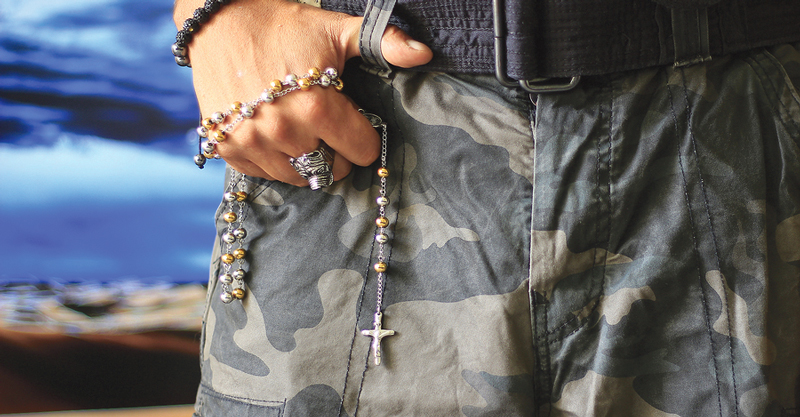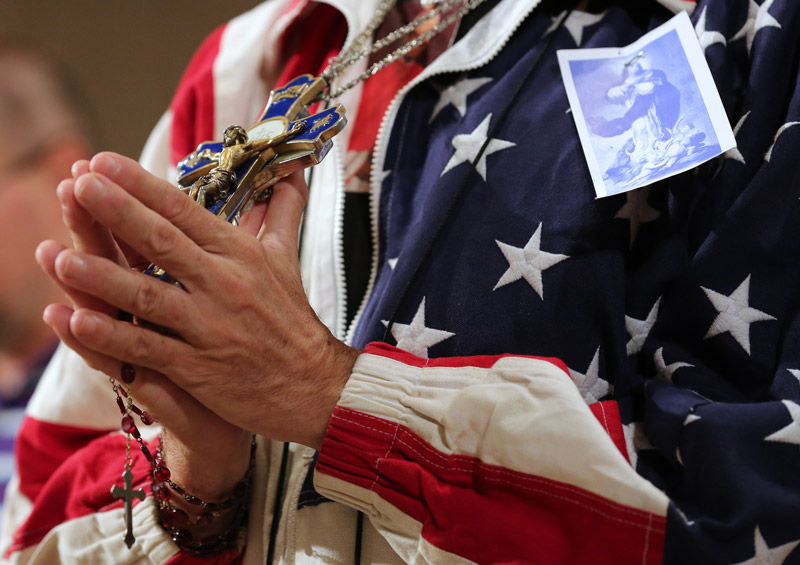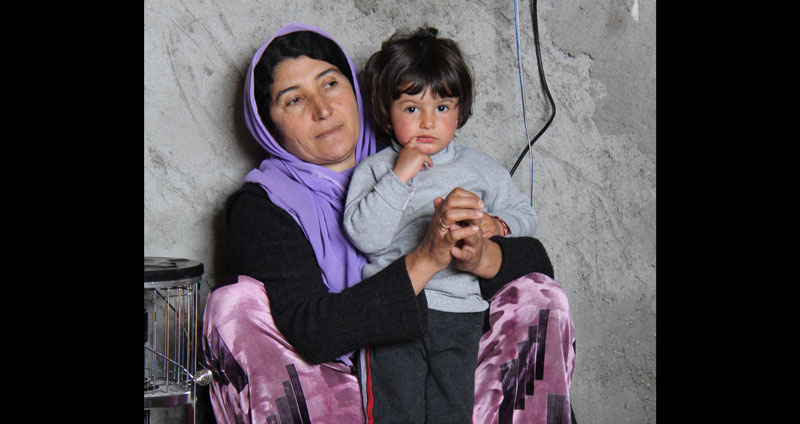
They used to call it saber rattling. Now we hear threats to blast and contaminate Guam or to unleash “fire and fury.” Talk abounds about the importance of finding diplomatic solutions to international conflicts. Meanwhile, we live with nuclear warheads, missiles ready to launch, guerilla warfare, terrorism, and threats of germ warfare and chemical warfare considered normative.
Each and all of these make anything resembling fairness in war impossible. Our arsenals affect not only armed combatants but whole populations. Those who strap explosives to themselves show that anyone in the general public could be an aggressor.
A question increasingly posed since the saturation bombing of Dresden by the Allies and the dropping of atomic bombs on Hiroshima and Nagasaki by the U.S. has been how a believer in Jesus can support any war — and particularly contemporary forms of warfare.
When we look at our Christian tradition, we find two different stances which have been taken. Both have been legitimized and must be honored when we encounter those who take either.
The first and oldest is the stance of Christian pacifism. “Blessed are the peacemakers,” Jesus said, calling on us to love our enemies. Early Christians seem by and large to have been pacifists. They could not justify fighting on behalf of an imperial pagan government. There were Roman soldiers who converted, but, like St. Martin of Tours, they typically renounced military life. Catholic pacifists today go so far as to take vows of non-violence.
Around the time of Martin’s young adulthood, Constantine legalized Christianity. After a time, it became the official religion of the empire. That put Christians in the awkward position of being responsible to arm in order to protect people and land. The second stance developed as St. Augustine (d. 430 A.D.) offered us a set of criteria for determining if a war might be just. First, it had to be for a just cause, namely, defensive. Second, it had to be undertaken for the right intention, which meant aiming to minimize bloodshed and restore peace as quickly as possible. Third, it had to be a last resort. Fourth, it had to be declared by legitimate authority.
In later times, St. Thomas Aquinas (13th century) and others pronounced three additional criteria. There had to be “comparative justice,” fair play in the conduct of the war, which included not targeting non-combatants. There needed to be proportionality, meaning that the harm done did not exceed the good hoped for. And, finally, there should be reasonable hope of success. The total of seven criteria were popularized by the U.S. Conference of Catholic Bishops in 1983 when they issued The Challenge of Peace.
People of faith have good reason to believe that God may tolerate a conventional armed intervention to save lives. But we expect God to abhor first strikes and any and all anti-population weaponry.
A hundred years ago, Our Lady of Fatima called us to be spiritual warriors. Prayer, penance, and conversion of heart win souls. Today’s wars potentially lose everything.
Sister Pamela Smith, SSCM, is the Secretary for Education and Faith Formation at the Diocese of Charleston. Email her at psmith@catholic-doc.org.




